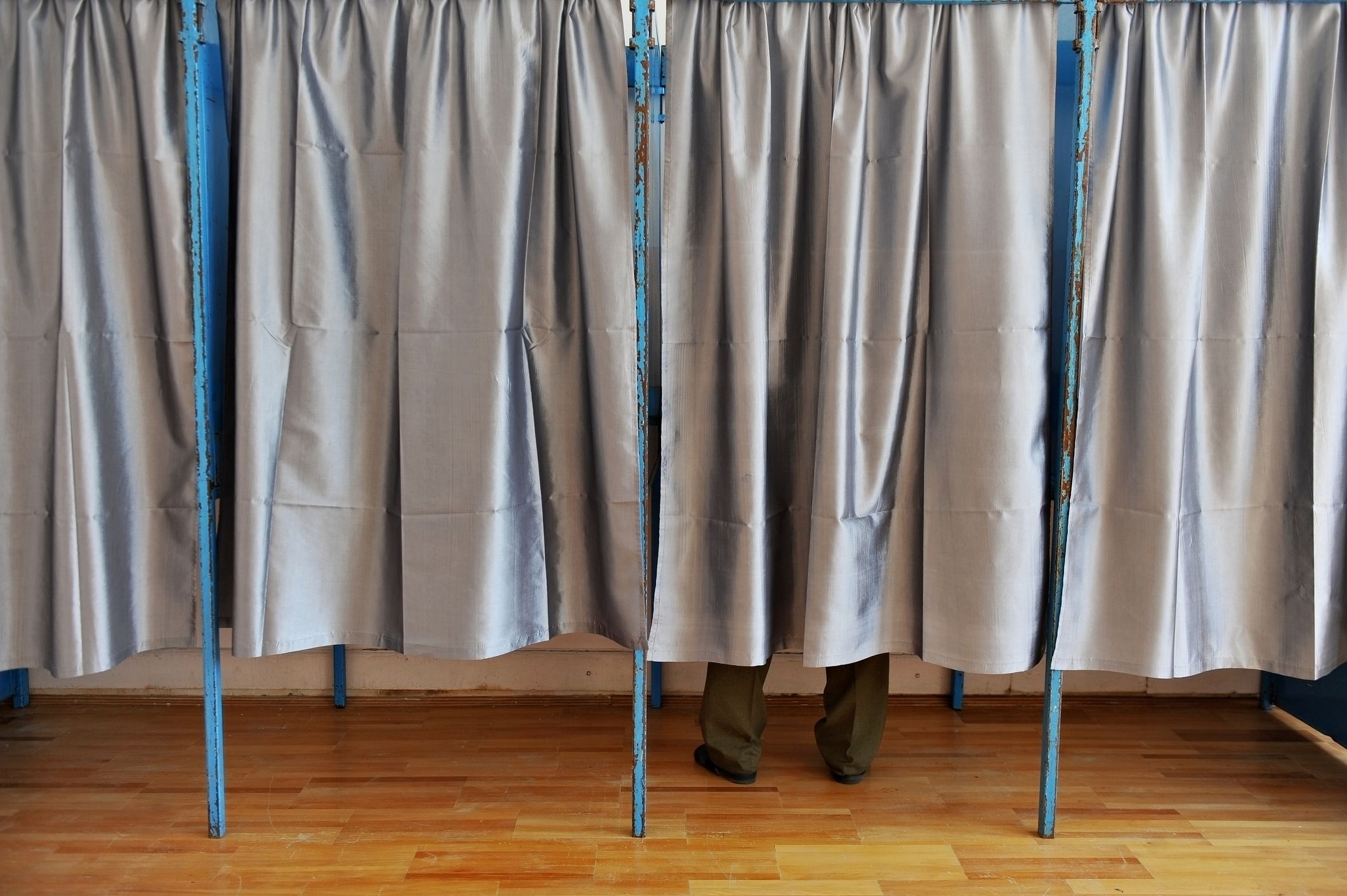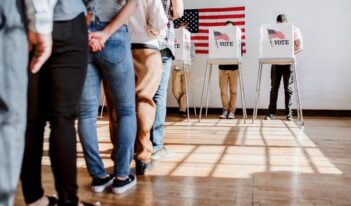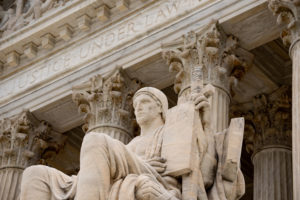
From expanding the electorate to adopting online voter registration, states and localities are engaged in democracy-enhancing efforts.
A common storyline on voting rights is that conservative legislatures, like those in North Carolina, Texas, and Wisconsin, are attempting to pass strict laws that make it harder for some people to vote—all in the name of curbing so-called “voter fraud.” Yet in the face of these unfortunate new rules, a positive trend is developing in other places: states are enfranchising more people and making voting easier. As voters head to the polls today, we should take note of and learn from these successes so that we can replicate them nationwide, extending them far beyond Election Day 2016.
From expanding the electorate, to adopting online voter registration or automatic voter registration, to making the voting process itself easier and more convenient, states and localities are actively engaged in democracy-enhancing efforts.
For one, states and cities are granting the right to vote to more individuals. In Virginia, at least 13,000 ex-felons who have finished serving their sentences will regain their voting rights once Governor Terry McAuliffe signs individual orders restoring their constitutional right to vote. Maryland also restored the right to vote for 40,000 felons on probation or parole.
Some towns and cities are expanding the right to vote in municipal elections. For instance, both Takoma Park and Hyattsville, Maryland allow 16- and 17-year-olds to vote for local offices; turnout within this age group has been about double that of all other voters. A handful of other towns and municipalities are in the process of considering similar measures. San Francisco is voting today on whether to lower its voting age to 16 for its own elections. In addition, a few jurisdictions allow legal noncitizens to vote in elections in which they may have a special interest, such as for school board (given that their children may attend the local public school). And some vacation towns, such as Rehoboth Beach, Delaware, permit nonresident property owners to vote on tax issues.
Voter registration has also become more convenient. Some states, like Iowa and Minnesota, have adopted same-day registration, allowing voters to register and vote at the same time. In over 30 states, registering to vote is easier thanks to the implementation of online voter registration. Now, with a click of the mouse or a swipe of a smart phone, voters can register to vote or update their registration information online. California, Connecticut, Oregon, Vermont, and West Virginia have moved to automatic voter registration, placing the onus on states to register voters; instead of having to “opt-in” by registering, the state registers all eligible individuals automatically, and those who do not want to be on the voter rolls must “opt-out.”
In addition, in many places voting itself is becoming more convenient than ever. In Colorado, Oregon, and Washington, voters can mail in their ballots, allowing voters to take the time to learn about the candidates and issues and then participate on their own schedule. Doña Ana County, New Mexico uses countywide vote centers—called “Convenience Centers”—instead of geographically based precincts on Election Day. Voters need not vote at their home precinct but can use any of the 39 polling places in the county, making it easier to find a place to vote near home, work, school, or wherever they may be.
State legislatures and courts also have enhanced legal protections for voters in many places. Illinois added a provision to its state constitution prohibiting voter discrimination. Courts in other states have robustly interpreted their own constitutions to go beyond federal constitutional jurisprudence in protecting the right to vote. For instance, state courts in Missouri, Pennsylvania, and Arkansas have invalidated strict voter ID laws under their state constitutions; these constitutions, unlike the U.S. Constitution, explicitly confer the right to vote.
These successful voter-expansion efforts can provide important lessons for further reforms.
First, one key to enhance voting rights is to select election administrators who understand the importance of protecting and expanding the constitutional right to vote. Committed individuals on the ground spearheaded each of the previously discussed voting initiatives. Some of the reforms came from the top down, with governors like Virginia’s Terry McAuliffe leading the way on felon re-enfranchisement. But many of these changes have occurred at the local level in city halls and county clerks offices. Voters should inform themselves as to which candidates—especially for secretary of state and county clerk—will make enhancing voter access a priority and then vote accordingly.
Second, technology is vital to expanding voting rights. As the recent news reports of election-related hacking demonstrate, we are not yet at a point of adopting Internet voting. But we can use technology to make voting easier, more streamlined, and more accessible to more people. Online voter registration and enhanced voting machines exemplify the kind of technology that can make registering and voting more convenient. Further, the use of technology to improve the electoral process should garner bipartisan support: those who worry about voter fraud should welcome advances that will clean up the voter rolls; those who want to enhance the voting process can use technology to make voting easier.
Technology helps to improve our representative democracy by allowing election administrators to open up the voting process to more people. For example, countywide vote centers use electronic voting machines that pull up the races for each voter based on the voter’s home address, providing flexibility for individuals to choose a voting location regardless of where they are physically in the county. Voting technology also allows a jurisdiction to expand the right to vote in local races for specific constituencies, such as 16- and 17-year-olds, because it permits jurisdictions to tailor the ballot to display only the races for which these individuals are eligible to vote. Even simplified forms of technology—like streamlined checklists for poll workers—can limit mistakes and reduce long lines, thereby minimizing the deterrence of long wait times at the polls.
Adopting new voting technology costs money. Indeed, many of our voting machines are woefully out of date. But the expenditures are worthwhile for protecting and improving our democracy.
The story of voting rights, then, is not entirely grim. Although there are certainly reasons for concern regarding ongoing attempts in various states to pass voter suppression measures, such as strict photo ID requirements, voter expansions around the country can counterbalance those restrictions. Of course, we still need courts to police the worst abuses by espousing a broad understanding of the constitutional right to vote. But we can take the lessons of these voter expansions to advocate for further reforms: additional restoration of voting rights for ex-felons, widespread adoption of online voter registration or automatic voter registration, and increased expansions of the eligible electorate, to name a few.
By selecting election administrators who are dedicated to enhancing voting rights and by implementing technological advances at the state and local level, we can improve our voting process and create a better functioning democracy.




